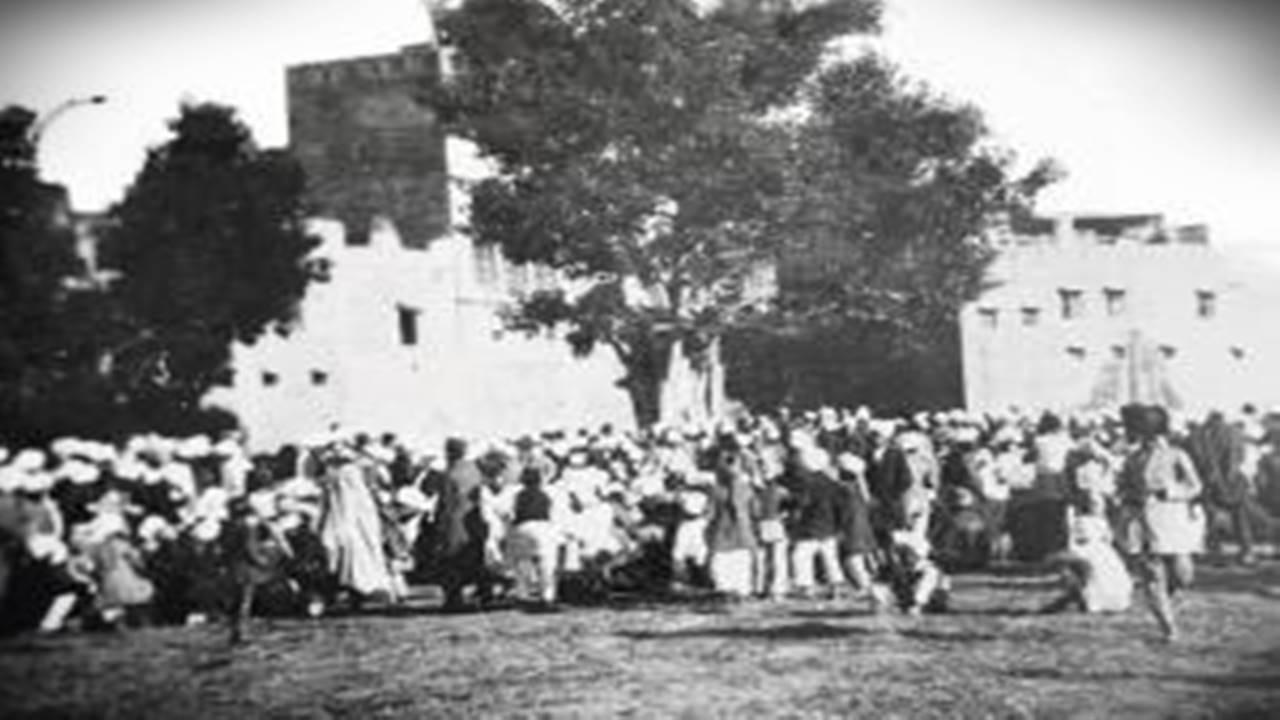The events leading up to the massacre began with the Rowlatt Act, a repressive law passed by the British colonial government in 1919 that allowed them to imprison anyone suspected of sedition without trial

A crowd at Jallianwala Bagh, late summer 1919. PIC Courtesy/The Nehru Memorial Museum and Library for Jallianwala Bagh: An Empire of Fear and The Making of The Amritsar Massacre (Penguin Random House)
The Jallianwala Bagh Massacre, also known as the Amritsar Massacre, was a tragic incident that took place on April 13, 1919, in the city of Amritsar in the Punjab province of British India. It was one of the darkest days in India's struggle for independence from British colonial rule.
ADVERTISEMENT
The events leading up to the massacre began with the Rowlatt Act, a repressive law passed by the British colonial government in 1919 that allowed them to imprison anyone suspected of sedition without trial. This act led to widespread protests across India, including in Punjab.
In Amritsar, a group of protesters gathered in the Jallianwala Bagh, a public garden, to peacefully protest against the Rowlatt Act and to demand the release of two prominent Indian nationalist leaders who had been arrested. The crowd consisted of men, women, and children from all walks of life.
The British colonial government, led by General Reginald Dyer, saw the protest as a threat to their authority and decided to take action. On April 13, 1919, Dyer and his troops entered the Jallianwala Bagh and blocked the only exit, trapping the crowd inside.
Also read: Indian Army’s Bomb Disposal Squad Neutralises IED Detected On Bandipora-Sopore Road In J&K
Without warning, Dyer ordered his troops to open fire on the unarmed crowd. The shooting continued for around ten minutes, until the soldiers ran out of ammunition. In the end, around 400 to 1,000 people were killed and over 1,200 were injured.
The Jallianwala Bagh Massacre sparked outrage across India and led to widespread protests against British rule. Mahatma Gandhi, who had previously supported the British in World War I, now called for non-cooperation with the colonial government. The massacre also played a significant role in the Indian independence movement, as it highlighted the brutality of British rule and the need for India to gain independence.
 Subscribe today by clicking the link and stay updated with the latest news!" Click here!
Subscribe today by clicking the link and stay updated with the latest news!" Click here!







